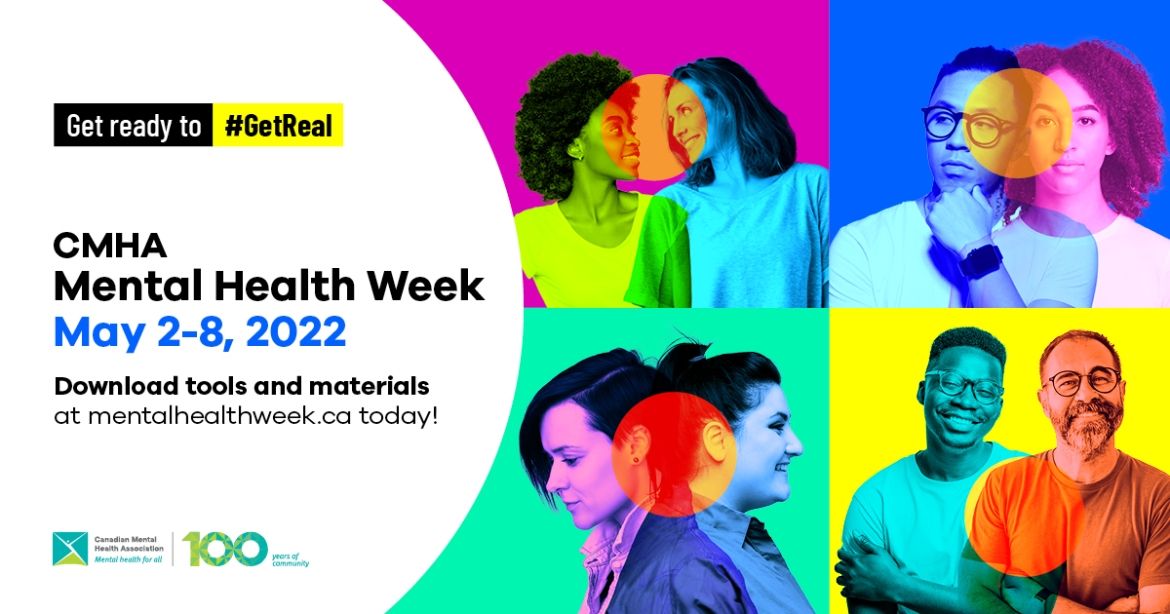Posted Date
May 2, 2022

1. When someone is struggling, people tend to offer solutions—or judgment—when what is needed most is empathy. We need to tune in before we weigh in.
- When someone is struggling with their mental health, our gut reaction might be to want to fix it.
- When we jump in to solve things, we might be missing what they really need, which is to know they’re not alone.
- Empathy includes recognizing others’ perspective as truth, being non-judgmental, understanding another’s feelings and being able to communicate that back to them.
2. What is empathy and what are the benefits?
- The importance of empathy is the theme for CMHA’s 71st Annual Mental Health Week.
- Empathy is the ability to understand how someone feels because you can imagine what it is like to be them.2
- Empathy promotes a feeling of emotional connection between individuals, groups families and communities.3
- Empathy involves putting yourself in the other person’s shoes and understanding why they may be feeling what they’re feeling.
- When people feel seen and heard, they feel supported and safe.
- In becoming aware of the root cause of why a person feels the way they do we can better understand and provide relevant support and suggestions.
- A person’s distress increases when they
3. Empathy is a skill that can be learned, and it’s fundamental to successful relationships at home, work and school.
- When speaking with someone experiencing a challenge, to show empathy you can:
- Consider what you know about them and be willing to learn more
- Not rush to judgement
- Listen attentively without offering solutions
- Resist the urge to interrupt and share your personal experience
- Focus on understanding how the person feels and why they feel that way
- Take time to reflect
- Employees with highly empathic leaders experience less burnout.
- When a manager is empathetic, their team displays improved work performance.
- Employees who experience empathy from their managers in the workplace report higher engagement, increased feelings of inclusivity, better work-life balance and are less likely to leave their workplaces if their perspectives are heard and respected.
- Classrooms with higher levels of empathy have students who are more engaged, have higher academic achievement, better communication skills, better relationships and lower likelihood of bullying, aggressive behaviours and emotional disorders.
- When educators demonstrate that they care and expect students to do the same, it can help students stand up for someone who is teased, notice and reject stereotypes, respect and value differences, widen their circle of concern, listen closely to peers and adults, manage difficult feelings like anger or frustration and navigate social situations.
4. The Canadian Mental Health Association’s annual Mental Health Week is a social change campaign to shift attitudes and perceptions about mental health. The 2022 theme is the importance of empathy.
- Each May, people in Canadian communities, schools, workplaces and legislatures rally around CMHA Mental Health Week.
- First marked by CMHA in 1951, May 2-8, 2022, marks the 71st annual Mental Health Week in Canada.
- Mental Health Week is a social change campaign to educate the public and shift beliefs and perceptions about mental health. It helps promote behaviours and attitudes that foster well-being, support good mental health and create a culture of understanding and acceptance.
- Visit www.mentalhealthweek.ca for info and tools about CMHA Mental Health Week.
- Connect with us on social media using the hashtags #GetReal and #MentalHealthWeek.
- Stay tuned for hundreds of local events like open houses, speakers’ series and virtual celebrations, plus two nationwide events, including a Virtual Mental Health Week English event on May 2 and a Virtual Mental Health Week French event on May 4.
- Mental Health Week is generously supported by major sponsor Beneva, sponsors The Medicine Shoppe, Not Myself Today and Workplace Strategies for Mental Health.
